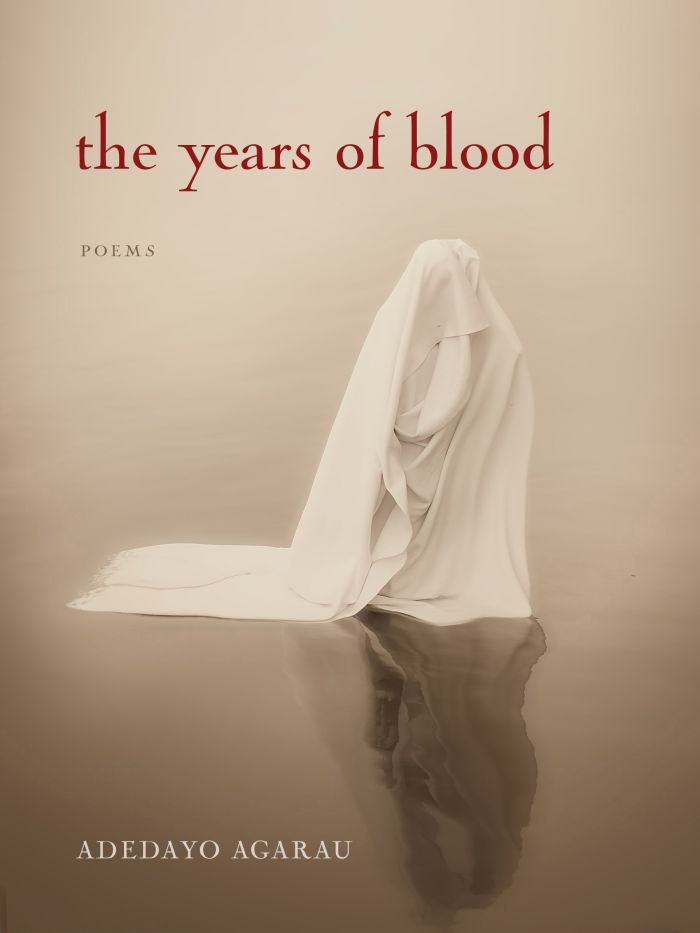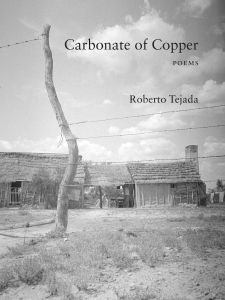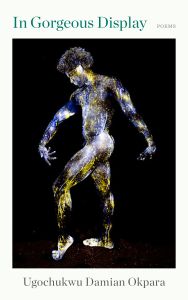The Years of Blood

This book can be opened with

Winner of the 2023-24 Poetic Justice Institute Editors Prize for a BIPOC Writer
ISELE MAGAZINE | EDITOR'S CHOICE: 25 MOST ANTICIPATED BOOKS OF 2025
THE MODACULTURE | 10 ANTICIPATED AFRICAN BOOKS OF 2025
OPEN COUNTRY MAGAZINE | ANTICIPATED BOOKS OF 2025
In this unflinching debut collection, Adedayo Agarau confronts the harrowing reality of ritual killings and child abductions that have terrorized Nigeria from the turbulent pre-democratic era to the present day. Set against the backdrop of rural Ibadan, The Years of Blood plunges readers into the depths of collective trauma where “memory forsakes the body at the point where fear fills the body like air.”
These poems bear witness to unspeakable atrocities through dreamlike landscapes and surreal imagery that resist rational explanation. Memory is as vital as it is ungraspable. As the painful poem “the abduction” puts it, “memory forsakes the body at the point where fear fills the body like air.” Or, in “Lilac,” where “the debris of memory / becomes the fog before you.” Agarau’s lyrical language—at once rich and broken—captures both the violence witnessed and the guilt of survival through repetitions of words, phrases, and motifs.
As both survivor and émigré to the US, Agarau explores “the weight of disappearance [that] hangs heavy over memory,” the ongoing trauma that cannot be shed, and the search for healing across continents. His poems attempt to wrest language out of terror’s domain, asking: “How many ways can the poet craft an elegy?”
Above and beyond its art, The Years of Blood is essential reading for those interested in African literature, postcolonial studies, and the intersection of personal and political history and global literature. In its unyielding approach to its subject matter, this volume is a crucial interlocutor to conversations on trauma, grief, loss, absence, migration, loneliness, and African spiritualism.
For readers of Ilya Kaminsky, Safia Elhillo, Ocean Vuong, and Claudia Rankine, this collection speaks to both specific cultural realities and universal human experiences through poetry that refuses easy consolation.
In the haunting horrorscape of these poems, crying bones usurp the streets; 'days of vanishing' darken into nights of wrenching anguish. 'Everywhere weed grows is a wide mouth eating children'.—Niyi Osundare, author of Songs from the Marketplace
Evil is a question for God and beauty emerges despite what the politicians have ruined... In this harrowing collection, Agarau shapes and sifts through shadow until light treads steadily home.—Remica Bingham-Risher, author of Room Swept Home
With exquisite sensitivity, rigorous measure, and steadfastness, Agarau writes a history in which the personal and lyrical necessarily run through its marrow.—aracelis girmay, author of the black maria
In a world that clamors for universality, Agarau looks within—invested in bringing to mind the beauty and brutality of his community, reminding us that humans are more alike than they are not.—D.M. Aderibigbe, author of How the End First Showed
Set in rural Ibadan, Nigeria, the debut from Agarau examines the country’s ritual killings and child abductions from recent history to the present.—Publishers Weekly
Author Website Twitter
Wind | 1
i
Ìbàdàn | 5
Sọ́kà | 7
We daydreamed of angels | 9
Unfound | 10
In which the morning after, a boy’s body had been dismembered | 11
Empty | 12
Ghost of a Dead Boy Writes from Sọ́kà | 13
hoax | 15
Salt water | 17
Bámis· é | 18
Night, prayer | 20
Portent | 22
ii
Boys who never die | 25
Entrance | 28
Sonnet with Blood Everywhere | 30
Fine boy writes a poem about anxiety | 31
Doomsday | 39
Arrival | 41
Sonnet with severed limbs | 45
Springfield | 46
the abduction | 48
It begins with gratitude & ends in rage | 49
Baba omo | 51
Two Boys, Their Mother & the Face | 52
Disappearance | 54
iii
Before the dark | 57
Ruin | 58
Wishbone | 59
The Dark | 61
The fig | 63
In which the horse saddles | 64
In the dark | 66
Pariboto riboto | 67
Lilac | 68
On joy | 71
Brown | 72
Migration | 74
iv
Prelude, Christmas | 79
Ileya | 80
Waiting for Her Son | 81
These days of varnishing | 82
Year of blood | 85
Litany in which my father returns home safely at night | 86
Glossary | 89
Acknowledgments | 95




